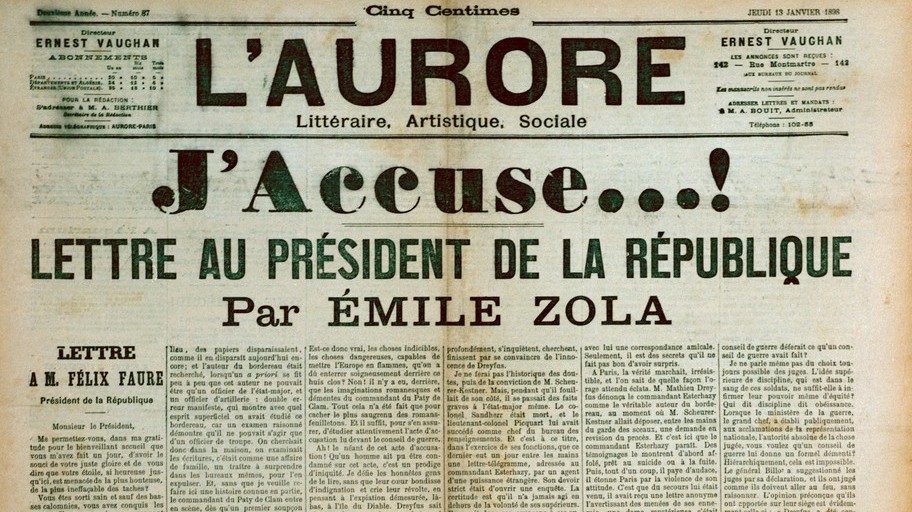125 years ago, French writer Emile Zola wrote an essay in defense of the unjustly convicted Jewish officer Alfred Dreyfus. Thus, he showed the same courage as Tomáš Garrigue Masaryk during the hilsneriad a year later.
A Jewish officer in the French General Staff, Alfred Dreyfus, was accused of spying for Germany in 1894. This was done on the basis of fabricated evidence, including a forged letter in which Dreyfus’ handwriting was identified by erroneous judgment. The officer was found guilty of treason, demoted and sentenced to life deportation to Devil’s Island off the coast of French Guiana.
As a soldier, he is innocent of nothing but being a Jew and displays brilliant judgment and commanding abilities. He fell victim to the envious and arrogant and anti-Semitic French establishment.
The Dreyfus affair deeply divided French society into supporters and opponents of the officer. A number of well-known figures defended him and the matter became widely known precisely thanks to Zola, who was on the front pages of the newspapers L’Aurore published an open letter to French President Félix Faure on 13 January 1898, entitled Accusation! (I demand!), in which he calls for Dreyfus’ release.
Zola knew very well that his sharp text would not escape him easily. He was eventually sentenced to a fine and a year in prison, but fled to London before sentencing. However, that is practically nothing compared to the wrong done to the man in whose defense he wrote the essay. Nevertheless, one can admire the courage of the writers to side with Dreyfus.
Zola proved with his texts that words are sometimes more effective than guns. Among other things, thanks to his open letter, Dreyfus was again tried in 1899. Although the evidence against him turned out to be falsified, he was sentenced again, this time for only ten years. Faure’s successor to the presidency, Émile Loubet, pardoned him immediately on condition that he set aside appeals.
When 62-year-old Zola died in September 1902, Dreyfus attended his funeral. In 1906, it was completely rehabilitated. During the First World War he held a command post and died in July 1935 at the age of 75.

“Tv nerd. Passionate food specialist. Travel practitioner. Web guru. Hardcore zombieaholic. Unapologetic music fanatic.”







